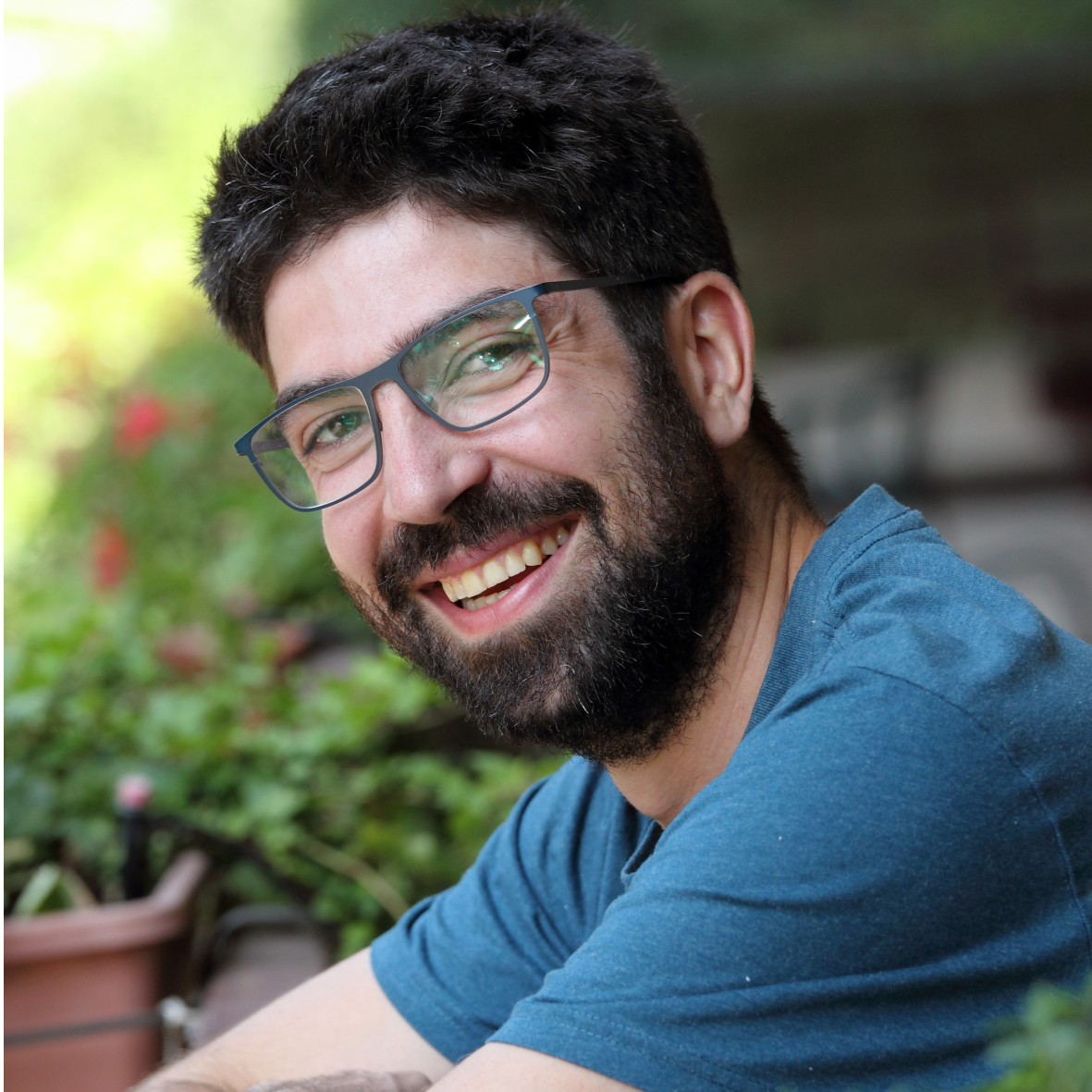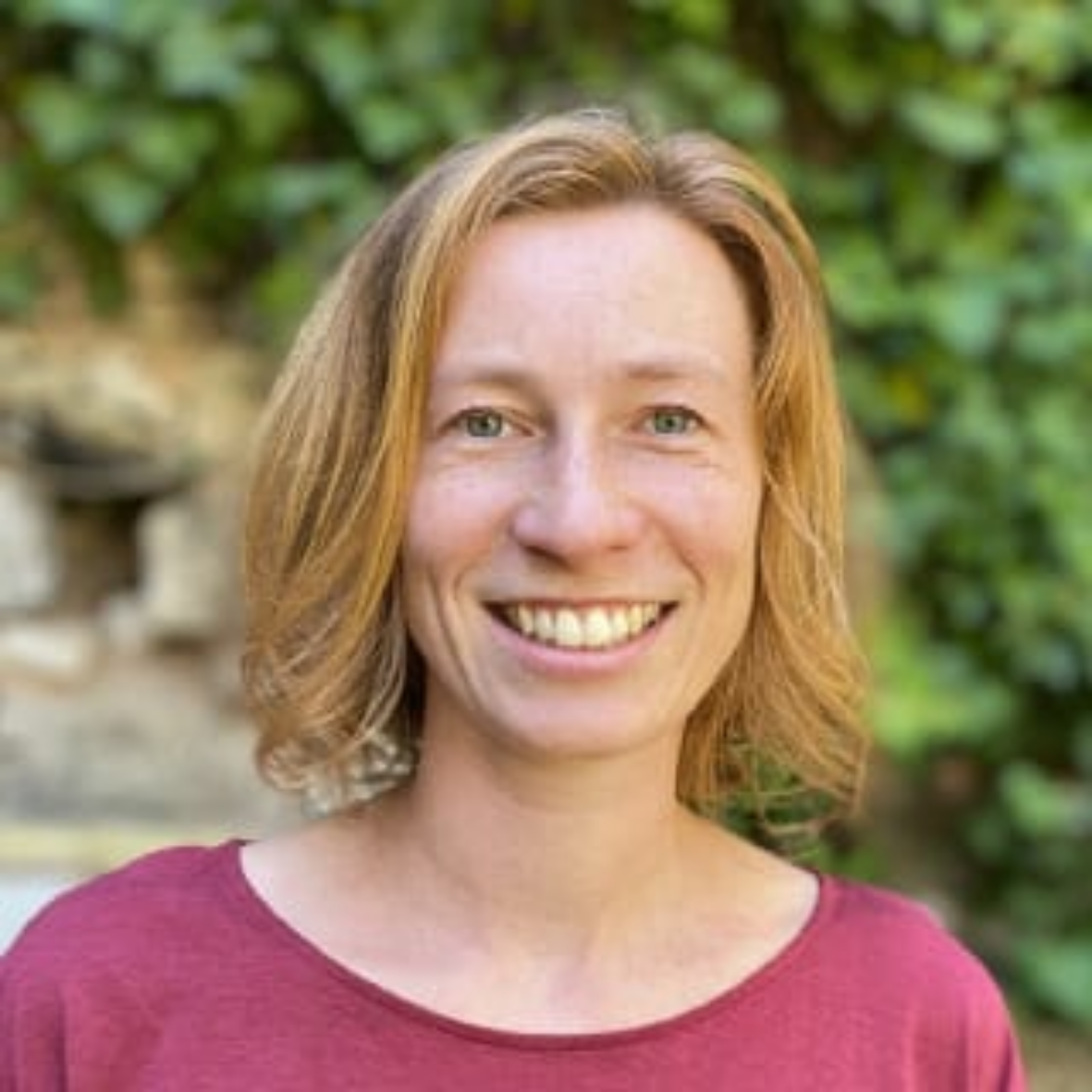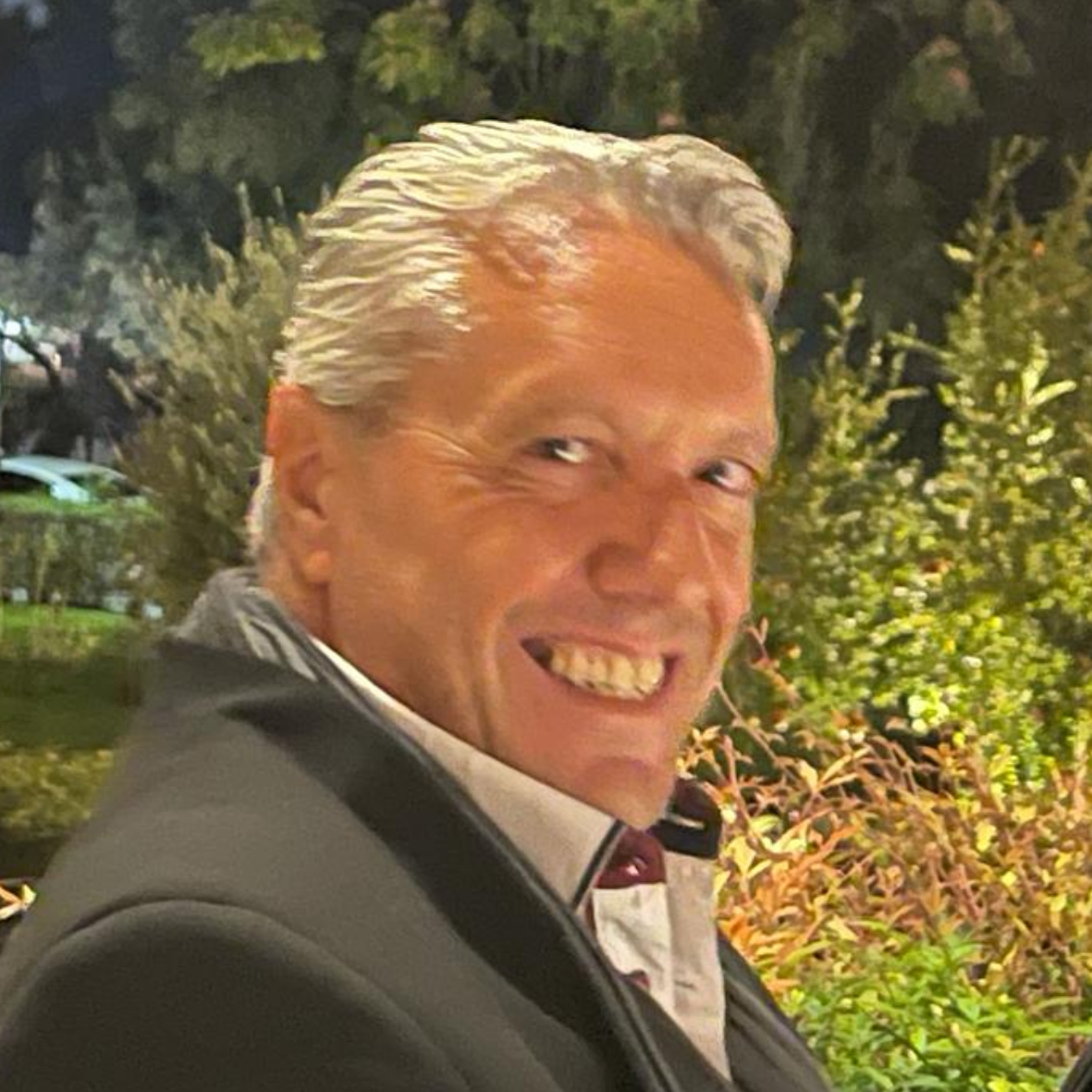Invited Speakers
 |
 |
 |
 |
| Giulia Ghedini |
Jacopo Grilli |
Claudia Bank |
Ian Hatton |
| Functional Ecology, Gulbenkian Institute of Science, Oeiras, Portugal |
Quantitative Ecology and Evolution, Abdus Salam International Centre for Theoretical Physics, Trieste, Italy |
Theoretical Ecology and Evolution, University of Bern, Switzerland |
Department of Earth and Planetary Sciences, McGill University, Montreal, Canada |
| Read more |
Read more |
Read more |
Read more |
| |
|
|
|
 |
 |
 |
 |
| Guillaume Achaz |
Michi Taga |
Massimo Amicone |
Lucie Etienne |
| Stochastic Models for the Inference of Life Evolution (SMILE), University Paris Cité |
Microbial Nutritional Interactions, University of California Berkeley, USA |
Evolutionary ecology of microbial communities, University of Lausanne, Switzerland |
Evolution of virus-host interactions, and impact on cross-species transmission, ENS Lyon, France |
| Read more |
Read more |
Read more |
Read more |
| |
|
|
|
 |
 |
 |
 |
| Sylvia Cremer |
Simon Babayan |
Saúl Ares |
Dimitrios Stravopodis |
| Social Immunity in Ants, Institute for Science and Technology, Austria |
School of Biodiversity, One Health and Veterinary Medicine, University of Glasgow, UK |
Clocks and Rulers in Life, National Biotechnology Centre, Madrid, Spain |
Cell Biology & Development, University of Athens, Greece |
| Read more |
Read more |
Read more |
Read more |
| |
|
|
|
 |
 |
 |
|
| Marco Cosentino Lagomarsino |
Denis Duboule |
Roberto Arbore |
|
Statistical Physics
of Cells and Genomes, IFOM and University of Milan, Italy |
Developmental Genomics, Collège de France, Paris, France
and EPFL Lausanne, Switzerland |
Evolutionary Genetics and Genomics, Cibio, Porto, Portugal |
|
| Read more |
Read more |
Read more |
|
note: the organisation of the different days is not definitive and is subjet to modifications
Day 1 - Ecology and Evolution
Session I
Functional ecology: metabolism mechanisms and evolution: from organisms to ecosystems
Giulia Ghedini is the principal investigator of the Functional Ecology group at IGC. The Functional Ecology group aims to understand how the environment (ecological context) regulates the rate at which organisms use energy and to identify general rules for how organismal processes scale up to determine the functioning of ecosystems. Her group works on phytoplankton as a model system because these tiny algae are key players in marine productivity and carbon uptake. By combining experimental manipulations of multi-species communities with metabolic phenotyping and methods from evolutionary biology, the group addresses three main questions: (1) How can we explain the recurrence of scaling patterns across biological scales? (2) Can we predict how metabolic traits evolve in communities? (3) What are the mechanisms that underpin metabolic changes? www.giuliaghedini.com/
Statistical Physics of cell size to bacterial communities
Jacopo Grilli is a Principal investigator at ICTP in Trieste, Italy. He has a background in statistical physics and, taking advantage of its tools, tries to address different questions in the realm of the ecology of bacterial communities. He spans from cell-size control problems to the study of statistical patterns in ecological communities, mixing both theory and data-driven approaches and cultivating a strong connection with experimental groups. His long-term goal is to develop a theoretical description of ecological communities grounded on the understanding of basic energetic constraints of cell growth. https://jacopogrilli.github.io/
Session II
Theoretical Ecology and Evolution
Claudia Bank is a Principal investigator at the University of Bern. Her group, the Theoretical Ecology and Evolution lab, uses theoretical and statistical approaches to quantify the relative roles of ecological and evolutionary forces for the buildup and maintenance of diversity. Specifically, they study the influence of fitness differences and fitness interactions (epistasis), mutation, and gene flow on adaptation, speciation, and the composition and stability of ecological communities. https://banklab.github.io/
Keynote 1
Growth dynamics: from cells to ecosystems
Ian Hatton is a researcher at the Max Planck Institute for Mathematics in the Sciences, Leipzig, Germany. He studies biological scaling and growth dynamics. Growth dynamics are relevant to a plethora of systems within the life sciences. The underlying principles have applicability across all levels of organization: from organelles to cells, tissues, and whole organisms all the way to populations and ultimately entire ecosystems. A variety of growth features across a diverse array of species and systems are strikingly similar. Understanding the structure and stability of these common aspects could also uncover the factors that lead to abnormal embryonic development or the spread of growth dynamics offering unique insights into biological theory ranging from ecological interactions to evolutionary processes. Aside from comprehending the principles that lead to universal patterns across multiple scales of organization, a more thorough grasp of the natural growth pad of disease. www.mis.mpg.de/institute/presse/news/hatton-humboldt-fellowship.html
Session III
Population genetics
Guillaume Achaz is a professor at the Université Paris Cité. He is interested in characterizing the evolutionary process at work that molds the current (genetic) diversity. To do so, he uses a mix of mathematical modeling, computer simulations, and genomic data analysis to confront models in the real biological world. He has developed an interest in Population Genetics, Comparative Genomics, and more generally any type of Molecular Evolution. He also loves teaching these subjects among others. Finally, he is fond of historical and philosophical perspectives on the field of evolutionary biology. https://smile.cnrs.fr/people.php?titre=Guillaume-Achaz
Day 2 - Interactions Across Scales
Session IV
Experiments to unravel microbial individual, population, and community interactions
Michi Taga is an Associate Professor at the Plant & Microbial Biology department at UC Berkeley. By examining microbes in isolation, in co-cultures, and within wholescale communities, the Taga Lab aims to uncover hidden interactions between microbes. They hope to apply their knowledge to manipulate microbial growth in controlled ways in order to dissect relationships between microbes and uncover new ways to promote environmental and human health. https://plantandmicrobiology.berkeley.edu/users/michi-taga
Evolutionary ecology of microbial communities
Massimo Amicone is a Postdoc in the group of Evolutionary ecology of microbial communities group of Prof. Sara Mitri, at the University of Lausanne. The group is interested in understanding how ecosystems of microbes evolve over time, and how they are shaped by the interactions taking place between individual microbial cells. We strongly believe in combining different research methodologies, including mathematical modeling, computer simulations and laboratory experiments.
Session V
Coevolution of host-virus interactions
Lucie Etienne is a Principal Investigator at the ENS Lyon. Her research group is broadly interested in better characterizing virus-host interfaces and their coevolution. The ultimate goals are to better understand the barriers against current pathogens and emerging viruses, as well as to identify novel targets for antiviral prevention or cure. To tackle these questions, the group uses a combination of phylogenetics, evolutionary analyses of host and viral genomes, as well as cellular and molecular biology and virology. https://lsetienne.wordpress.com/
Keynote 2
Impact of pathogens on social interactions
Sylvia Cremer is a professor at the IST Austria. Her main research interest lies in understanding the evolution of cooperative disease defenses in insect societies. In contrast to solitary organisms, individuals in social groups do not have to rely solely on their own behavioral and physiological immune systems. By performing collective hygienic measures they help each other and thereby greatly decrease disease susceptibility of group members. Her team studies the effects of pathogens on social interaction networks in ant societies and determines how interaction with sick nestmates affects both the hygiene behaviors and the physiological immune system of individual ant workers. They study host-pathogen systems with ants and their fungal, bacterial, and viral pathogens. They consider ant societies and their pathogens an ideal model system for understanding epidemiology in societies. https://socialimmunity.com/
Session VI
Immunity at the molecular, cellular, organismal, and population levels
Simon Babayan is a senior lecturer and PI at the University of Glasgow’s School of Biodiversity, One Health and Veterinary Medicine, interested in fundamental and applied aspects of infection and immunity. The processes by which biological phenotypes are generated are highly interconnected, i.e. complex, and dynamic. Yet understanding these processes, at least to a pragmatic depth is essential for predicting how organisms are likely to respond to natural environmental change and to human interventions. He is particularly interested in the ecological, epidemiological, and immunological processes that are amenable to interventions including drug treatment, vaccination, and vector control. While the data we collect on these complex biological systems offer narrow views of their generative processes, mathematical modelling of various applied forms (statistical, dynamical, causal) allows us to estimate the parameters (or functions) that link observed data (variables), to evaluate those estimates in light of the observed data (cross-validation), and thereby to make useful inferences and predictions. Babayan's core drive is to harness these quantitative tools to address the ubiquitous and potentially existential threats posed by infectious disease. Specifically, he seeks to better understand (a) the genetic and phenotypic adaptions that drive organismal permissiveness (tolerance) and resistance (immunity) to infectious agents, and how these drive disease transmission among populations and host range; (b) how organisms deploy their immune systems to maintain their health and fitness in the face of natural and anthropogenic environmental variability (wild immunology); and (c) how interventions such as drug treatment, vaccination, or dietary supplementation may affect the organisms’ ability to control infection and maximise their health and fitness. https://www.gla.ac.uk/schools/bohvm/staff/simonbabayan/#
Day 3 - Patterning and Signaling
Session VII
Oscillations and pattern formation in biological systems, gene regulatory networks
Saúl Ares is the Principal Investigator of the Clocks and Rulers in Life group, at the National Biotechnology Centre in Madrid. He is a researcher in biological physics, systems biology, and mathematical physics. His group is interested in spatiotemporal phenomena in living systems: oscillations, pattern formation, and dynamics of gene expression. www.cnb.csic.es/index.php/es/component/k2/item/1548-clocks-and-rulers-in-life
Cancer, brain diseases, developmental and genomic stochasticity, microscopy
Dimitrios J. Stravopodis is an Associate Professor of Cell Biology and development at the University of Athens. His research interests are Targeted Chemotherapy of Human Malignancies – RASopathies (with emphasis on urinary bladder cancer, melanoma, and glioblastoma), Cancer Metabolism – Warburg Effect, Tumor Metastasis – Epithelial-to-Mesenchymal Transition (EMT) – Mesenchymal-to-Epithelial Transition (MET) (with emphasis in cutaneous melanoma), Programmed Cell-Death Repertoires in Model Biological Systems – Cancer Chemoresistance: Causalities and Mechanisms (in therapeutic and developmental settings), Modeling of Human Diseases in Drosophila Brain during Ageing (with emphasis in TORpathies {TS: Tuberous Sclerosis}), Developmental Stochasticity – Genomic Stochasticity, Cryo-electron Microscopy Imaging of Cellular Pathology. http://en.biol.uoa.gr/sections/section-of-cell-biology-biophysics/stravopodis-dimitrios.html
Session VIII
Statistical Physics of cells and genomes
Marco Cosentino Lagomarsino is an Associate Professor at the University of Milan. His group, Theory, and Complex Systems, studies the Statistical physics of cells and genomes. In his vision, contemporary biology is characterized by a massive flux of data and by new high-precision techniques. These technological changes open new scientific perspectives, which in turn lead us to challenge the classic paradigms. In this context, quantitative approaches are essential, and modeling methods based on statistical physics find new avenues for application. www.ifom.eu/en/cancer-research/research-labs/research-lab-cosentinolagomarsino.php
Keynote 3
Development from molecular to organismal: regulation and evolution
Denis Duboule is a Professor at the Collège de France, Paris, France and at EPFL Lausanne, Switzerland. He is a developmental biologist studying body formation across scales, from molecular level to organismal. His group is interested in the regulatory mechanisms underlying vertebrate pattern formation, in both developmental and evolutionary contexts. For the past years, they have focused on Hox genes, a family of transcription factors that display special paradigmatic values, regarding their regulatory strategies, their functional organization, and their key roles in morphological evolution. https://www.epfl.ch/labs/duboule-lab/
Session IX
Evolutionary Genetics and Genomics
Roberto Arbore is an Auxiliary Researcher in the Evolutionary Genetics and Genomics group at the Cibio in Porto, Portugal. He is an evolutionary biologist with a keen interest in the study of phenotypic evolution from a multilevel perspective: what are the molecular bases of phenotypic traits and how do environment, physiology, development, and genetics interact to drive trait evolution? To date, my research has focused on invertebrate model systems – annelids, flatworms, freshwater crustaceans, semiaquatic bugs, and butterflies – and spanned diverse topics as sexual selection in simultaneous hermaphrodites, the ecological genetics of benthic adaptations of planktonic crustaceans, the genetic bases of sexually selected traits, and the contribution of lineage-specific genes to the development of lineage-specific traits. My current project at the BIOPOLIS/CIBIO-InBIO, in collaboration with the Corbo Lab at the Washington University in St. Louis, aims at elucidating the molecular and cellular bases of structural colouration in bird feathers using domestic peacock colour mutants and wild species as models. https://cibio.up.pt/en/people/details/roberto-arbore/















